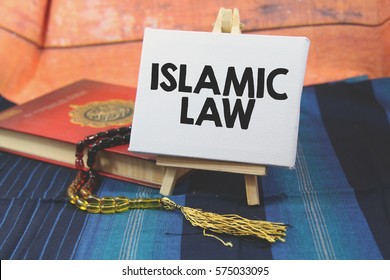Sources of Muslim Law:
Sources means the origin, a place from which a person or
thing has emerged. There can only one source of law and that is the Indian
Parliament and the State legislatures, which are the law-making bodies of our
nation. But since the personal laws are based on the customs and practices of
the religion, it is not possible to do away with them and frame the laws
completely adverse to the religious beliefs.
The Islamic law is referred as “Sharia”. Islam has
its own personal, civil, criminal, evidence and international law. Following are
the types of sources under Muslim Law
1) Ancient Sources
2) Customary Sources
3) Modern Sources

Image Credit: www.slideshare.net
1) Ancient sources of Muslim law:
These are also called as primary sources of Muslim law.
Ancient sources are those sources which are based on religious beliefs
mentioned in Holy Scriptures or books. These sources are universally accepted
as authentic and these sources shall be relied before any other source. For any
question relating to the personal life of family, the Muslims shall resort to
these ancient sources of law to understand the legal opinion in such
situations. The ancient sources are the governing pillars of this religion.
Even today in 21st century, most of the Muslim personal laws are
uncodified and some which are codifies are not being followed because of
conflict with their traditional sources.
There are five types of religious sources of Muslim Law:
1) Quran: It is the collection of commandments communicated
to prophet Muhammad by Allah through Angel Jibrail. It’s authority is
paramount.
2) Sunnah: Just as Quran is the express revelation through
the prophet, the Sunnah are implied revelations in the precepts and sayings of
the prophet, not written down in his lifetime, but preserved by traditions and
handed down by authorities agents.
3) Hadith: Just as Quran is the express revelation through
the prophet, the Hadith or Hadis are implied revelations in the precepts and
sayings of the prophet, not written down in his lifetime, but preserved by
traditions and handed down by authorities agents.
4) Ijma: Ijma means the consensus of the companions and
followers of the prophet Muhammad. Abdur Rahim defines it as ‘the agreement of
the jurists among the followers of the prophet in a particular age on
particular question.’
5) Qiyas: Qiyas means ‘measuring’, ‘accord’ or ‘equality’.
In Muslim jurisprudence it means an extension of law from the original text by
means of common sense. According to Jung, ‘it is a process of deduction
applying the law of the text to the cases which, though not covered by the language
of the text, are nevertheless covered by the reason of the text.’
2) Customary sources:
The Muslim people are governed by some informal laws based
on customary practices, which differ from cultural, social and political
scenario. A custom is a tradition passing on from generation to another, which
originally governed human conduct and obtained the force of law in a particular
locality. Customs are basically practices that people follow continuously for a
long period of time. In fact, people follow them for so long that they obtain
the status of law in some cases. It is a natural source of law.
3) Modern Sources:
Apart from ancient and customary sources enlisted above,
secondary sources or modern sources also govern Muslim law.
1) Legislation: There have been many legislative enactments
which have considerably amplified, altered or modified the original Muslim law.
e.g. 1) Shariat Act, 1937; 2) The Dissolution of Muslim
Marriages Act, 1939; 3) The Muslim Women (Protection of Right on Divorce) Act,
1986 etc.
2) Judicial Precedents: Interpretation of Muslim law by the
judges of the Indian High Courts and Supreme Court continue in modern times to
supplement and modify the Islamic law. These decisions are regarded as
precedents for future cases.
3) Other modern sources: These are based on law of equity
and good conscience. Sometimes analogical deductions failed to satisfy the
jurists owing to the narrowness and inadaptability of the habits due to
hardship to public. In such case a jurist could use good conscience. These may
include the following:
i) Isti Hasan – it is based on the jurist preference of
equity.
ii) Isti Salah – it is based on the jurist preference of
public interest.
iii) Ijtehad – Shariyat is based on this.
iv) Taqlid – It is nothing but the law of precedents.
v) Fatwas – These are
decisions of Muslim judges.Thanks for reading till the end. Please follow and share this blog for more law notes.





